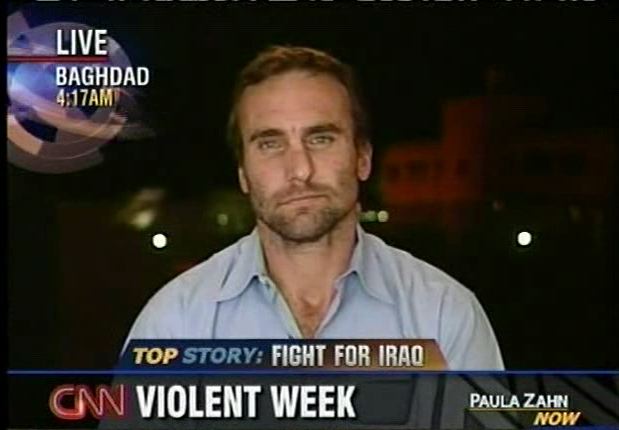PZN: "Welcome to the holy month of Ramadan."

Click photo to play
Length: 3:47
PAULA ZAHN: Our "Top Story" moves on to the fight for Iraq. Today, U.S. forces killed eight people, including four suspected terrorists and four civilian women. The military says it happened during a raid on a suspected terrorist's house just northeast of Baghdad.
But relatives of the dead deny the U.S. account, and say the family had nothing to do with any terrorist group. So far, this week, three Americans have died fighting in Iraq. Also, today gunmen opened fire on worshipers heading to a Sunni mosque in Baghdad. Ten people died, 11 wounded. At least eight died in car bombs.
And, in the last 24 hours alone, police have found 17 bodies, all tortured, throughout Baghdad. It is adding up to an exceptionally violent week in Iraq.
(BEGIN VIDEO CLIP)
MAJOR GENERAL WILLIAM CALDWELL, U.S. ARMY SPOKESMAN, COALITION FORCES IN IRAQ: This has been a tough week. Over the past two weeks, we have seen a rise in the number of attacks, especially in Baghdad.
(END VIDEO CLIP)
ZAHN: The top military spokesman in Iraq saying suicide attacks are at their highest level ever this week.
Let's get the very latest on the situation from Iraq tonight with Michael Ware. He reports from Baghdad.
So, Michael, why the increase in these attacks?
MICHAEL WARE, CNN CORRESPONDENT: Well, Paula, you know, welcome to the business of war in Iraq. I mean, this is not far off the general grind of attacks and the letting of blood that we have been seeing for well over a year now.
And why the spike right now? Well, welcome to the holy month of Ramadan. This is the fourth Ramadan offensive by the insurgents. We expected this. The military flagged it early on. And here it is. This is a sign that the insurgency, the militias, and al Qaeda, which sends these suicide bombings, are all out there, and thriving -- Paula.
ZAHN: Do Iraqi citizens tell you, Michael, they have any confidence that this new government can do anything about this?
WARE: No, not at all.
I mean, even American officials, offline, will openly admit to you that the prime minister has no power whatsoever. In fact, they see that as one of the appeals of Prime Minister Nouri al-Maliki. He doesn't really have the full backing of any of the major power blocs or the parties, or the militias, more particularly. So, they see him with clay with which they can work.
The trick is giving him power, finding it for him. And that's what this battle of Baghdad is really all about: Secure the city, and try and develop a popular support base for him.
But, when you talk to Iraqis -- and as this poll shows -- no one feels secure, and most people just want the Americans to leave -- Paula.
ZAHN: Yeah, let's talk a little bit more about the specific poll, because it just came out. It was released from University of Maryland, and basically shows that 70 percent of all Iraqis want all U.S. forces out within a year. Is that what you hear on the street?
WARE: That's what I have been hearing for three-and-a-half years, Paula.
I mean, in the early days, in the immediate backwash of the invasion, people were sort of, "OK, well, you removed Saddam; you removed that regime."
This is Sunni and Shia.
The next thing was, "Well, thank you for that. When are you leaving?"
And then the troops didn't. It turned into the occupation. Iraqis refer to the Americans as the occupiers. They are as, to their mind, under a state of occupation. And they don't like it. Middle Iraq gave the American forces a window of opportunity as an extension of good faith: "All right, you said you were here to deliver progress and development. So, let's see it. I will give you a year. OK, I gave you two. I gave you three. Well, now, I can't even leave my house. I can't send my kids to school. This isn't working." Paula.
ZAHN: Michael Ware, thanks so much for the update. Appreciate it.
